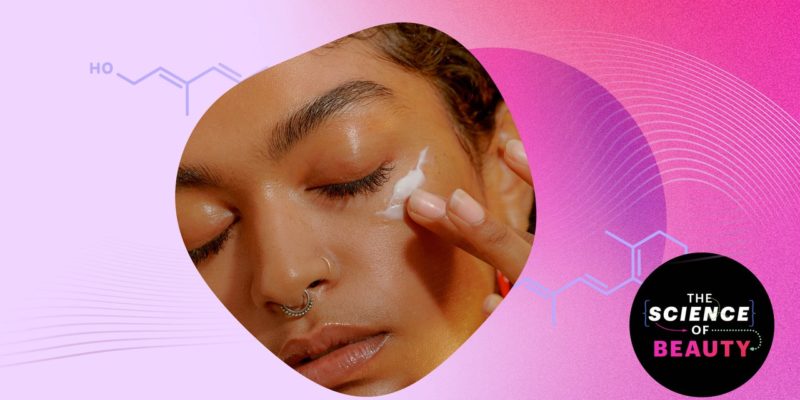The 6 Best Vitamins for Your Skin | The Science of Beauty Podcast | Allure
Unlike other vitamins, vitamin B refers not to a single vitamin, but a group of them. There are eight different types: thiamine (B1), riboflavin (B2), niacin (B3), pantothenic acid (B5), B6, biotin (B7), folate (B9), and B12. Phew!
A form of vitamin B3 called niacinamide is one of the B vitamins most commonly found in skin care. Niacinamide is best known for helping skin maintain its normal barrier function, and reducing dryness and soothing related conditions like eczema. It increases the level of lipids — called ceramides — in the skin, making it ideal for moisturizing. It can also improve the appearance of your skin tone and texture. In fact, Neuser calls niacinamide “fuel for your skin cells” because it enhances many of the processes that are important for creating healthy, well-balanced skin. “It helps to reduce the appearance of pores, dark spots, pigmentation, redness, and fine lines and wrinkles,” she says, adding that the ingredient can be found in many of Olay’s products.
Vitamin B5 — also known as pantothenic acid — is another important B vitamin that’s often used in skin care. “It’s really good at soothing the skin and keeping it soft and supple,” says Neuser. Pantothenic acid improves skin hydration, reduces moisture loss, and has anti-inflammatory effects, making it beneficial for those with irritated skin.
How It’s Used:
Neuser says you can be pretty liberal when using products with vitamin B derivatives like niacinamide. “Using niacinamide twice a day gives the best benefits,” says Neuser. “It doesn’t have any negative side effects or irritation.” (But check that your blend of choice doesn’t also contain irritants or exfoliants.)
Vitamin F
What It Does:
Vitamin F is just starting to gain traction in the skin-care world. However, it’s always been known to play an important role in our health thanks to its ability to reduce some types of inflammation and improve heart health.
While its name certainly implies otherwise, vitamin F is not actually a vitamin. That “F” refers to fatty acids. Vitamin F is primarily found in linoleic acid (an omega 6 fatty acid) and linolenic acid (an omega 3). Together these help regulate and promote the healthy function of our body, including playing a role in the health of our skin. Vitamin F aka fatty acids assist in normal skin function and protect a healthy skin barrier, while also acting as an effective skin-soothing agent.

